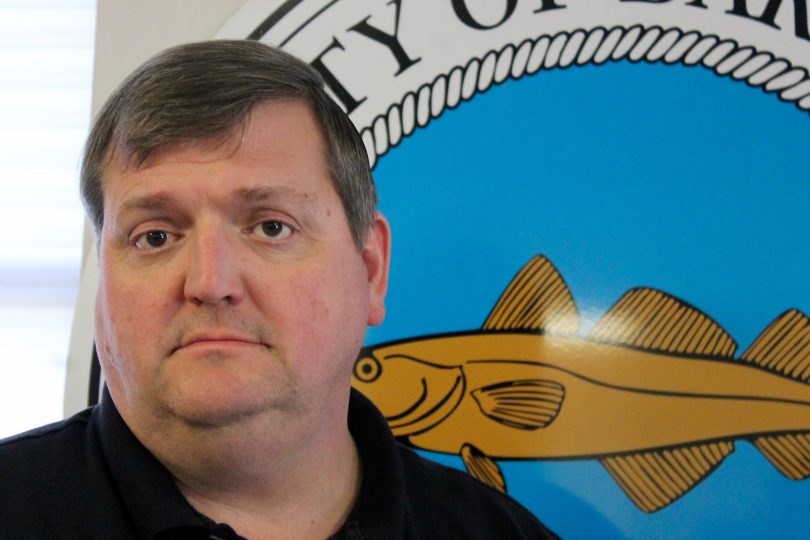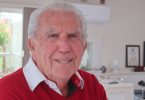BARNSTABLE – Barnstable County Commissioner Ronald Beaty Jr. believes he is the first person elected to office in the country who previously spent time in federal prison for threatening to kill the President of the United States.
A quarter century after writing what Beaty, 56, described as “graphic letters” threatening to kill the President George H.W. Bush, Senator Edward Kennedy and Massachusetts State Senator Lois Pines, Cape Cod voters in 2016 elected Beaty, a fiscal conservative, staunch Donald Trump supporter, and outspoken critic of government as one of three county commissioners.
Beaty, in office since January, has caused several public stirs, most recently for suggesting that baited drum lines be put off Cape Cod to cull the shark population. Among his many critics was an articulate 12-year-old girl who ended up on Boston television news calling the plan misguided.
“There’s a an old saying that politics is a blood sport. In some cases, that rings true.” – Barnstable County Commissioner Ronald Beaty Jr.
Beaty doesn’t care who his opponents are. He is now talking about running for governor as a Republican challenger to popular Governor Charlie Baker. Beaty recently has taken to Twitter to attack Baker, calling him a “Wimp,” “Snowflake,” and other names.
These attacks are part of what he calls, “my own brand.”
As a politician who won his most recent race but lost several previous races for various state and local offices, and as a prolific writer of letters to the editor of local newspapers, Beaty has steadfastly pushed his conservative agenda while occasionally veering into various battles that sometimes seem personal as well as political.
“There’s a an old saying that politics is a blood sport,” said Beaty. “In some cases, that rings true.” But he added that he has looked back at certain of his actions. “You have a conscience,” he said. “You start thinking about it.”
His brand can be antagonistic and, keeping with that, Beaty wrote on Twitter that if he became governor he would name controversial Maine Governor Paul Le Page as his chief of staff.
Beaty recently tweeted out a bumper sticker-type graphic that said, “Deplorable And Proud Of It!”
As for those death threats and his time in prison, he said, “It’s something I have to live with. I have that baggage… It’s one of the reasons I run for office and try to serve my community. I look at it as a sort of penance.”
![]() How Did Ron Beaty, Convicted Felon, Get Elected On Cape Cod?
How Did Ron Beaty, Convicted Felon, Get Elected On Cape Cod?
Given Beaty’s, as he described it, “baggage,” his election is one of the most remarkable political stories ever on Cape Cod, or maybe anywhere.































